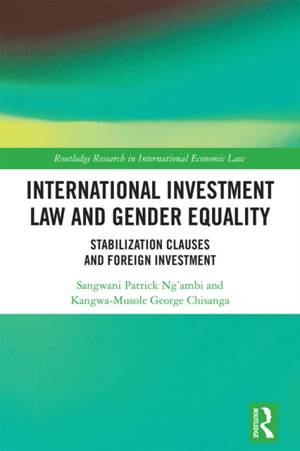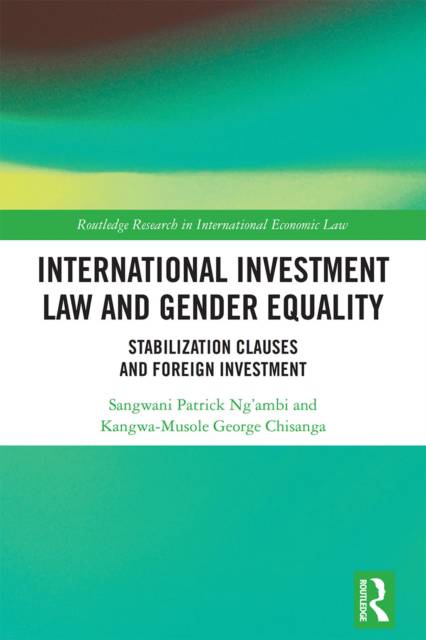
- Afhalen na 1 uur in een winkel met voorraad
- Gratis thuislevering in België vanaf € 30
- Ruim aanbod met 7 miljoen producten
- Afhalen na 1 uur in een winkel met voorraad
- Gratis thuislevering in België vanaf € 30
- Ruim aanbod met 7 miljoen producten
Zoeken
International Investment Law and Gender Equality
Stabilization Clauses and Foreign Investment
Sangwani Patrick Ng'ambi, Kangwa-Musole George Chisanga
€ 83,95
+ 167 punten
Uitvoering
Omschrijving
This book analyses the impact that stabilization clauses have on the development of human rights and gender laws in resource rich nations.
Given the fact that stabilization clauses freeze the law for as long as the contract subsists there has been debate on the negative impact stabilization clauses have on the progressive development of human rights in the host State. Firstly, the book examines the mechanisms investors utilise in protecting themselves from host State prerogatives. It then explores the theoretical basis on which stabilization clauses are applied and upheld by arbitral tribunals, and assesses how they can be drafted in a way that protects human rights, particularly in relation to gender discrimination, without forcing the resource rich nations to lose momentum in attracting foreign direct investment. Using Zambia and the Gender Equity and Equality Act of 2015 as a case study, the book explores the compatibility of the legislation with the stabilization clauses contained in the country's Development Agreements. The book will be of interest to practitioners, scholars and students of international investment law, human rights law and contract law.Specificaties
Betrokkenen
- Auteur(s):
- Uitgeverij:
Inhoud
- Aantal bladzijden:
- 152
- Taal:
- Engels
- Reeks:
Eigenschappen
- Productcode (EAN):
- 9781032236483
- Verschijningsdatum:
- 13/12/2021
- Uitvoering:
- Paperback
- Formaat:
- Trade paperback (VS)
- Afmetingen:
- 156 mm x 234 mm
- Gewicht:
- 226 g

Alleen bij Standaard Boekhandel
+ 167 punten op je klantenkaart van Standaard Boekhandel
Beoordelingen
We publiceren alleen reviews die voldoen aan de voorwaarden voor reviews. Bekijk onze voorwaarden voor reviews.











